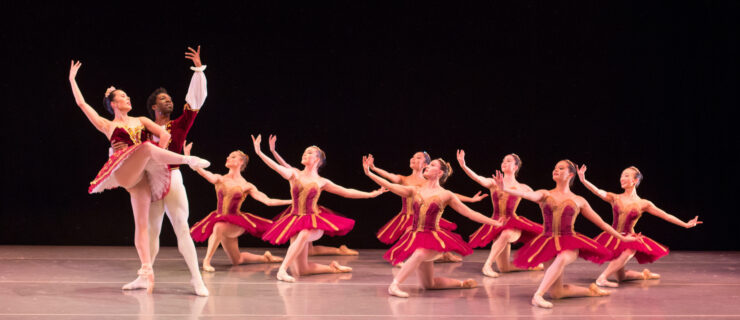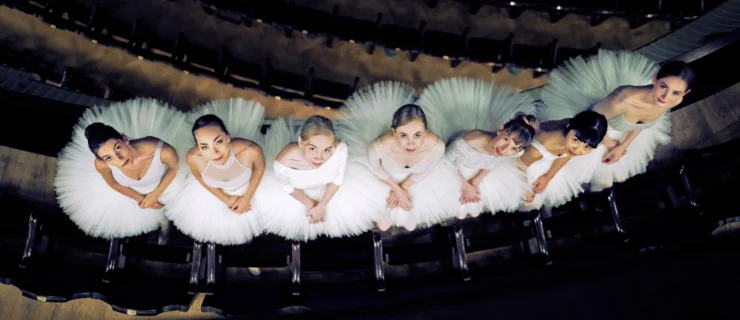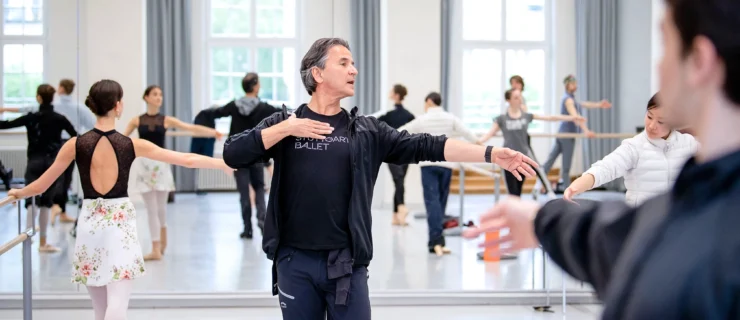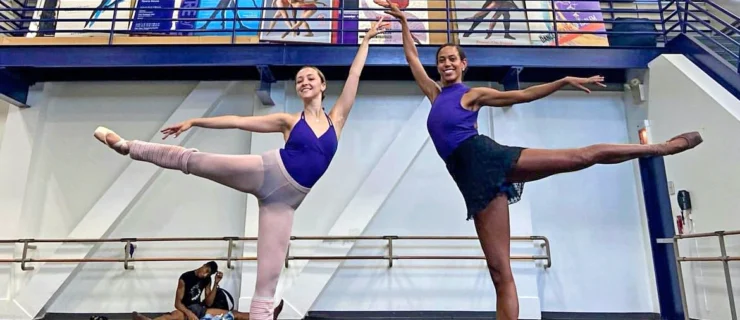Ask Amy
I feel like more and more people are passing me technically every year. Though I’m only 14, this is the most important time of my training and when I have the best chance to be noticed. At what age should you really know whether dance is the right path for you? —Eleanor
Relax. You still have some solid training years ahead and time to determine whether a career is right for you. Dancers progress at different speeds, especially at your age, when bodies are changing and experiencing growth spurts. I had doubts about making it as a professional when I was 14, too. But with a lot of hard work I made significant improvements, and by my senior year of high school, I knew a career was possible. Give yourself a chance—a lot can change in the next few years.
Still, you are at a crucial point. Decide if you are willing to commit to the intensive training schedule necessary for becoming a professional. If not, then you’re in the wrong business. But if you are
willing, make the most of it right away. Be sure you’re going to an excellent ballet school, taking as many classes as possible, auditioning for summer programs and learning everything you can about the field.
If you’re behind technically, do some “extra credit” to catch up. Take a few additional classes or set up some private instruction. Find a free studio to practice on your own. Set realistic goals for yourself, and then evaluate your progress every few weeks. Talk to your teachers; let them know you want to pursue a dance career and ask for feedback. And check in with yourself periodically—your interests may change, and that’s okay. Fully explore your possibilities. You’ll know eventually if you’re headed in the right direction.
I was told that I have weak ankles. I’ve been practicing relevés, but my ankles aren’t getting any stronger. What else can I do? —Savannah
Weak ankles are prone to sprains, so you’re smart to want to strengthen them. Invest in a medium-strength resistance band (commonly called a Thera-Band), found at sporting goods stores and on dance supply websites. I practice a series of ankle strengthening exercises with mine every day before class.
Sit on the floor with your feet in front of you, looping the band around the ball of one flexed foot. While gently pulling on the band, wing your foot out and slowly bring it back to center. Shannon Casati of Ballet Austin’s physical therapy team recommends doing 10 to 20 repetitions, or until you feel a burning sensation in your muscles. Then reverse the exercise with the foot sickling in. You can also use the band to practice pointing and flexing your foot.
Casati also recommends another exercise to increase ankle stabilization: Standing in parallel, lift one leg up in a turned-in retiré. Cross your arms over your chest and balance. “Once you feel comfortable,” says Casati, “try closing your eyes. When you’ve mastered that, try the exercise while balancing on a pillow.” Stay diligent with your exercises and your relevés. Eventually, you should notice a difference in your ankle strength.
I’ve been offered work in a company in New York, but my parents insist that I get a college degree. Is there any way I could earn a degree while dancing professionally? —Pascale
You can definitely go to school while dancing professionally, and many dancers do. I myself am an English major at Marymount Manhattan College. Since most colleges offer evening, weekend or online courses, it’s easy to pursue a degree part-time. I load up on classes during the summer when I’m not performing and enroll in independent studies or online courses during busy touring seasons. Going to school part-time is a slow process, but credits eventually add up.
“I look for classes that fit into my schedule,” says New York City Ballet soloist Ellen Bar, who takes up to two courses a semester at Columbia University’s School of General Studies. This past spring, she scheduled one class on her day off and another in the morning, before rehearsal. Time management can be challenging, but dancers are disciplined enough to handle the pressure. “I allot certain nights of the week to do homework,” says Bar. “And I usually have a lot of reading, which I can do on rehearsal breaks.”
Sit down with your parents and investigate your options—several are listed in the Dance Magazine College Guide. Hopefully, your parents will understand the rare and exciting opportunity you’ve been given, and be open-minded about part-time education.




